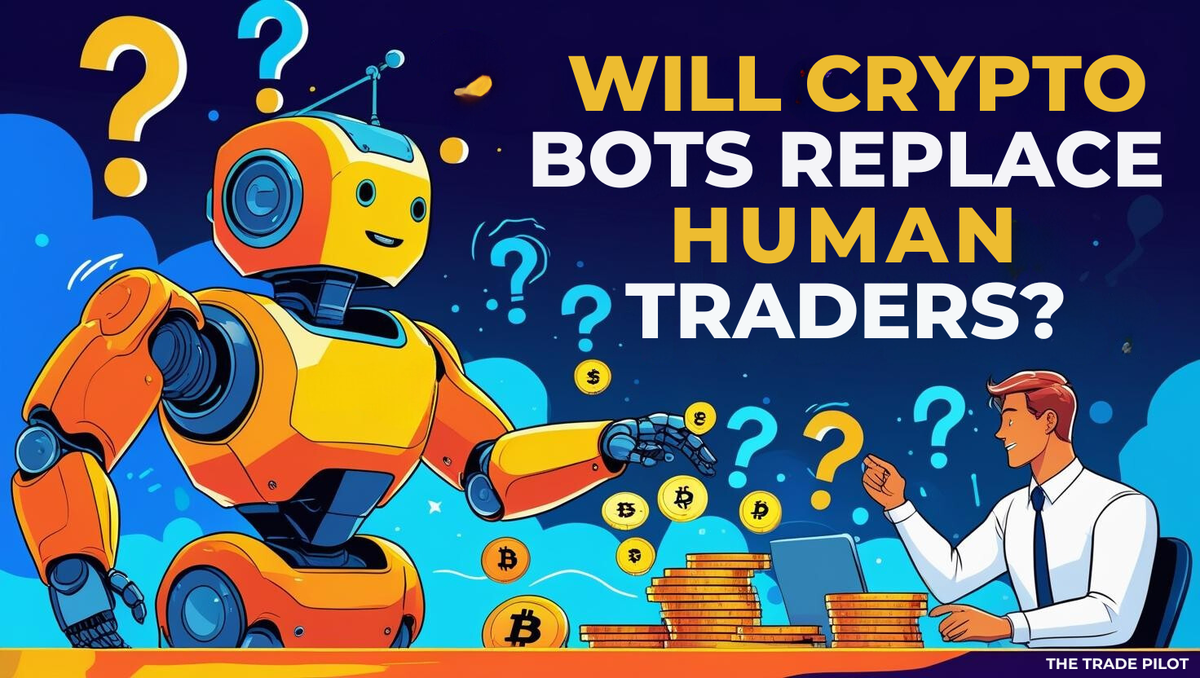Can bots take over the crypto market? This article dives deep into the debate about whether automated trading systems will ever fully replace human decision-makers.
As automated trading tools continue to evolve, a growing question among investors is: will crypto trading bots eventually replace human traders? With platforms like The Trade Pilot offering increasingly powerful tools, it's easy to see why some might think so. But the answer isn't so simple. Bots and humans each bring distinct advantages and limitations to the table, and the future of trading likely depends on a blend of both.
The Rise of Crypto Bots
Crypto bots have become more popular in recent years as the markets grew more volatile and 24/7 trading made manual management difficult. Tools like The Trade Pilot allow users to automate strategies, implement Grid and DCA setups, and manage risk with features like trailing stop loss and take profit—freeing traders from constant monitoring.
Bots excel at executing tasks without emotion, at lightning speed, and following strict rules without deviation. They don’t sleep, get tired, or panic during a crash. With more traders looking for efficiency and consistency, it’s no surprise that bots are gaining traction.
What Human Traders Do Better
Despite the power of automation, human traders still have advantages that bots currently can't match. These include:
- Contextual Thinking: Humans can interpret news, economic events, social trends, and non-quantitative information.
- Strategy Adaptation: A skilled human can adjust or build a new strategy based on market conditions, while bots only do what they’re programmed for.
- Creativity: Innovation in trading strategies often comes from human insight and experience.
- Risk Intuition: Humans sometimes "feel" when something is off—a gut sense built from experience. Bots lack this intuitive layer.
Can AI Bridge the Gap?
Artificial intelligence (AI) promises to narrow the gap between bots and humans. Some AI-powered trading systems already attempt to learn from historical data, adapt to changing conditions, and even use sentiment analysis. However, many of these systems still fall short in unpredictable, fast-moving markets like crypto.
AI models often lack transparency, which can be risky. And while machine learning can find patterns, it doesn’t always know what to do with unexpected inputs. In crypto, where sudden regulatory news or tweets can shake the market, AI isn't yet reliable enough to fully replace human thinking.
In the future, AI may improve dramatically. But even then, many traders may still prefer systems they fully understand and control.
The Best of Both Worlds
Rather than thinking in terms of bots vs. humans, a better approach may be bots with humans. Trading bots handle the heavy lifting, execute orders, and monitor the markets, while human traders define strategy, interpret broader market trends, and step in when needed.
This hybrid approach combines the consistency and speed of bots with the intuition and adaptability of people. Platforms like The Trade Pilot are built for exactly this—allowing users to automate key tasks but retain full control over strategy design and decision-making.
The Future Is Flexible
As the trading landscape evolves, it’s likely that bots will continue to play a larger role—but not by replacing human traders entirely. Instead, the future will involve more collaboration, with traders becoming strategy designers and bots acting as tireless executors.
Simple, customizable bots like The Trade Pilot are likely to remain popular. Many traders will prefer tools they can understand, configure, and trust—without relying on opaque AI decision-making.
The future is about choice: whether you prefer full automation, manual control, or a blend of both, tools like The Trade Pilot let you trade your way.
Final Thoughts
So, will crypto bots replace human traders? Probably not entirely. They will continue to improve and take over more functions, but human insight, creativity, and adaptability will remain valuable. For now, and likely well into the future, the best results may come from humans and bots working together.

